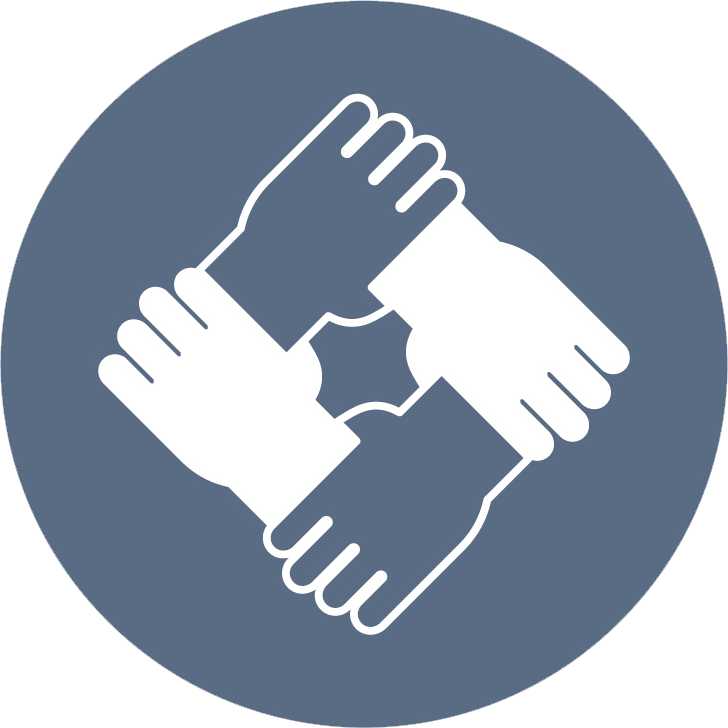Guiding Human Rights Principles
SNAP 2 is guided and underpinned by fundamental human rights principles. These apply to all SNAP 2 actions and are as follows.
Participation and Collaboration
- Everyone has the right to participate in decisions that affect them and their rights – “nothing about us, without us”.
- People’s participation must be free, meaningful and active, and attention should be given to accessibility, including access to information in a form and a language that can be understood.
- SNAP 2 is a collaboration between rights holders, civil society, and public bodies in Scotland – in its development, delivery, and oversight.
Accountability
- Accountability means that duty bearers are responsible and answerable for their human rights obligations.
- In order to fulfil their human rights obligations, duty bearers must understand their responsibilities.
- For accountability to be effective, there must be suitable laws, policies, administrative procedures, redress mechanisms and effective remedies in order to secure human rights. Accountability also requires transparency and effective monitoring of human rights standards.
Non-discrimination, Equality and Intersectionality
- The United Nations (UN) notes that Article 1 of the Universal Declaration of Human Rights (UDHR) says, “All human beings are born free and equal in dignity and rights”, and that freedom from discrimination, as set out in Article 2 of the UDHR, is what ensures this equality. Being free from discrimination means that all discrimination must be prohibited, prevented and eliminated.
- People who are in the most vulnerable situations and who face the biggest barriers to realising their rights are prioritised. When developing SNAP 2 actions, the SNAP Leadership Panel were very aware that some people experience bigger barriers because of inequality and discrimination related to their characteristics or how their characteristics intersect. In SNAP 2, these rights holders are called “people whose rights are most at risk.”
- People whose rights are most at risk can vary from issue to issue. Delivery stakeholders will work together to identify and prioritise the people whose rights are most at risk in relation to each SNAP 2 action. A non-exhaustive list (because others can be identified) of people whose rights could be most at risk includes: Black and minority ethnic people; care experienced people; children and young people; families of accused persons and people in custody; disabled people, including people with learning disabilities and autistic people; LGBTQIA+ people; lone parents; migrants, refugees and people seeking asylum; older people; people on remand; people in poverty; people with lived experience of homelessness; people with lived experience of substance use; people with long term conditions; people with mental health conditions; people with religious belief/faith; people living in rural or remote areas; Scottish Gypsy/Travellers; unpaid carers; and women.
- All forms of discrimination should be looked at through an intersectional lens. In SNAP 2, the term ‘intersectionality’ is used to describe the intersection of different and multiple characteristics that create interdependent and complex systems of power, discrimination and disadvantage.
Empowerment
- People should be able to name and claim their rights, and be empowered and encouraged to participate in decision-making and the development of policy and practice that affects them and their rights.
- SNAP 2 actions are intended to promote and support rights holder empowerment.
- Rights holder participation in SNAP 2 actions should be an equal and empowering experience.
Legality
- The full range of legally protected human rights must be respected, protected and fulfilled. It also means that human rights should be recognised as legally enforceable entitlements, and included within national law.
- Several SNAP 2 actions are intended to help improve existing law or its implementation, or prepare for the incorporation of international human rights into domestic Scots law.
SNAP 2 Priorities
SNAP 2 has eight priorities. These reflect some of the main issues that currently affect people in Scotland, as well as universal human rights standards that should be respected, protected and fulfilled.
The SNAP 2 priorities are as follows.
- Achieve a decent standard of living.
- Improve health, wellbeing and the environment.
- Enhance education and work.
- Protect private and family life.
- Ensure justice.
- Learn from COVID-19.
- Realise a human rights culture.
- Plan and support incorporation.
Echoing the interdependence of human rights, there are strong connections between the priorities. For example, standard of living is closely related to health and wellbeing, as well as the environment, education, and work.


End of page.